 BBC News
BBC NewsBorrowing was £17.4bn last month, the second highest October figure since monthly records began in 1993.
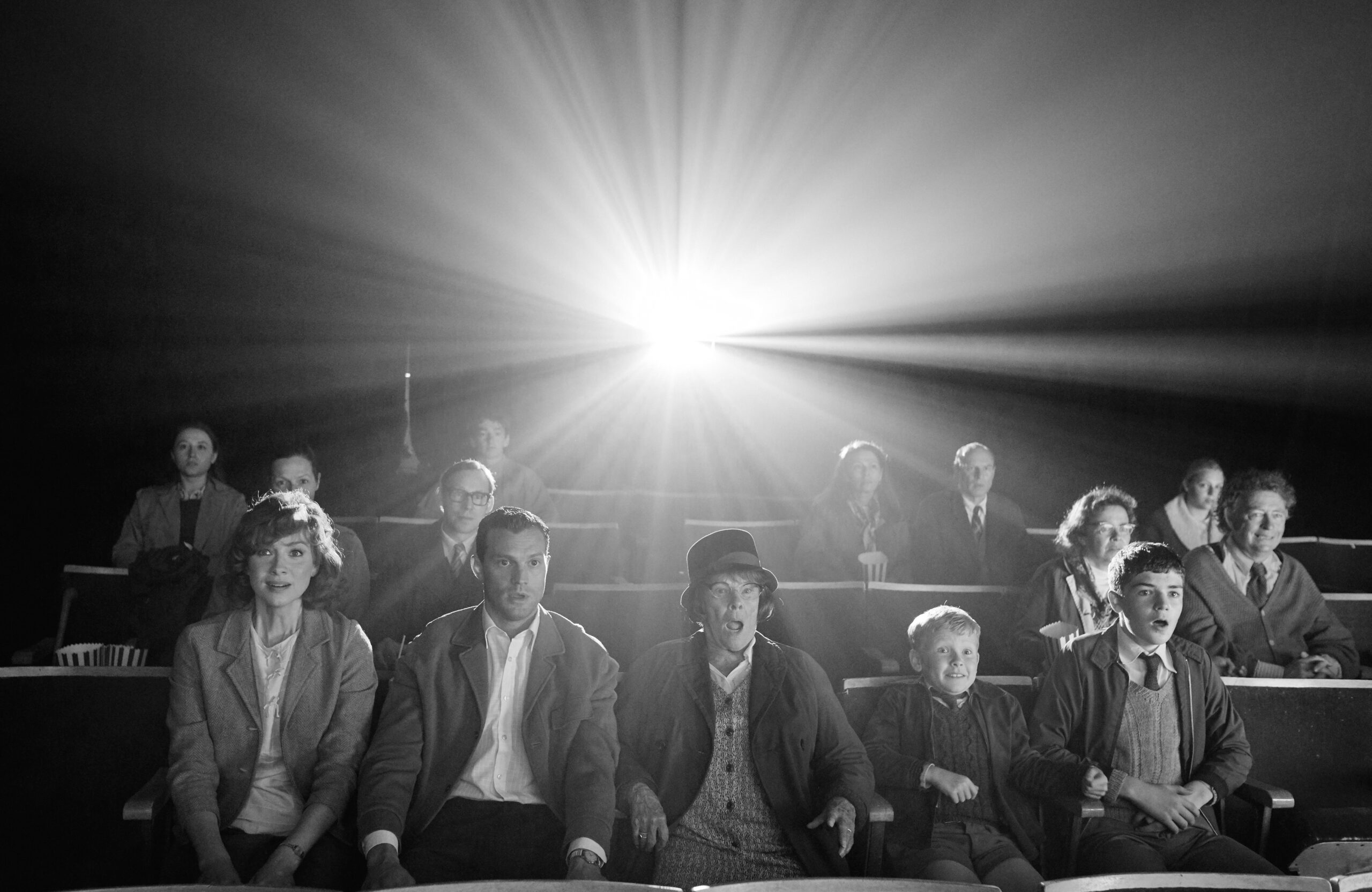
by Christopher Jackson
The stature of Kenneth Branagh isn’t in doubt, though I have sometimes heard people prepared to whisper in tiny voices their slight doubts about his acting. For some, this began with his slightly self-indulgent and extraordinarily long turn as Hamlet in 1996. I will always remember his adolescent delivery of the famous line ‘Words, words, words’ with embarrassment.
But Branagh is a particularly complicated figure if you happen to be a fan of David Suchet’s Poirot. It is very hard to think of a better performance in modern television. Given that Suchet only finished the role recently it is evidence of alarming ego that Branagh has recently felt the need to take on the role himself in two bizarre offerings: Murder on the Orient Express (2017) and Death on the Nile (2022). We didn’t need another Poirot at all, but what we got was a bad one to spoil the memory of a marvellous one.
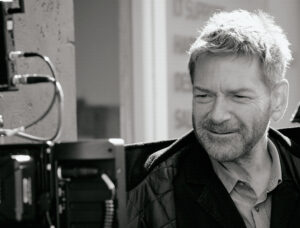
Writer/director Kenneth Branagh on the set of BELFAST, a Focus Features release. Credit: Rob Youngson/Focus Features
Even so, a cultural figure of Branagh’s sway will always attract funding for new films and it must be said it’s very good news that those who provided funding for this didn’t hold his role as the Belgian detective against him. Partly because the film is a tender reckoning with his own past, and partly because he has eschewed vanity by wisely deciding not to be in it, Branagh has rebounded from his Poirot nadir to produce something superb. The film makes you wonder what Branagh might have achieved if he’d only been an author and a director. Perhaps his stature would have been even greater.
All the promotional material for Belfast is in black and white. So it comes as something of a surprise to find that the first shots in the film are in colour.
This is contemporary Belfast, not Belfast as you might have expected from the posters: a collage of shots of a very modern city. These opening scenes are beautifully shot but they make the viewer feel that Belfast today is a city whose optics are like any other. It is a place of neoliberal prosperity, in thrall to the automobile: another weekend destination where might expect our museums and galleries, a zoo, bars and restaurants and so forth. Only once Belfast today is shown, does the film shed colour and then we travel back in time to the August 1969 riots.
It’s a clever but not showy device – a way of establishing at the outset that this isn’t just a story about an Ulster Protestant family – Kenneth Branagh’s family, as it happens – but about a collective people. Belfast aspires to be a tale of historical dimensions. In being a story about a city, it is also a tale about a city’s economy and the way in which our work changes us, and how we change as a community according to economic need.
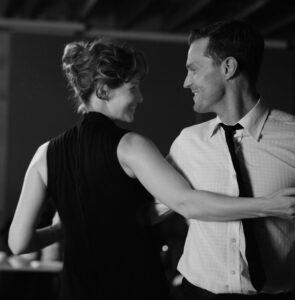
Caitriona Balfe (left) stars as “Ma” and Jamie Dornan (right) stars as “Pa” in director Sir Kenneth Branagh’s BELFAST, a Focus Features release. Credit : Rob Youngson / Focus Features
Of course, it’s also many things besides. The story is told predominantly through the eyes of Buddy (Jude Hill), whose family includes Ma (Catríona Balfe), Pa (Jamie Dornan), Granny (Judi Dench) and Pop (Ciaran Hinds). The film begins with the harrowing scenes of August 1969: a group of Protestant loyalists attacking the houses of Catholics who live on Buddy’s street.
We are brought straight into the stress and flux of history: this is a film which insists on the instability of life, and celebrates whatever it is we can do to push back against that – primarily, the family and the community. Buddy will grow up then in a world seemingly defined by tribalism, but a world also of incipient globalisation. This is the conflict that makes the film, and with the rise of various nationalism around the world, it is also one of the defining aspects of our current lives. This isn’t one of those films that aspires heavy-handedly to be relevant, but by being true it does speak to the present moment.
The tribal aspect of the Belfast Branagh grew up in is told primarily through the figure of Billy Clanton (Colin Morgan) who turns up menacingly on Buddy’s street to threaten Buddy’s father about his refusal to join in with the persecution of Catholics. “We’re looking to cleanse the community a wee bit,” he says. “You wouldn’t want to be the odd man out in this street. You saw what happened to your neighbours on the other side.” Pa’s refusal to do so is connected to his decency and the sense he has of himself as being a person beyond the clashes of the past. He wishes instead to attach himself to the global economy: he already works in England, but dreams also of far-flung places like Sydney and Vancouver. Ma is a little horrified by this though, and feels she would miss the Belfast they would be leaving behind.
This then is a film about Belfast becoming an unsafe place, one defined by sectarian religious conflict. The story is really a simple one about whether the family should leave or not. As the world knows, Branagh’s destiny was to seek remedy in departure. He became a global star, and I suspect has been to Sydney and Vancouver, and everywhere else many times.
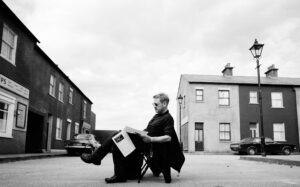
But he is too smart, and has too good a memory of what he left behind, not to leave us with this elegy to the Belfast that was. This Belfast is told primarily through Judi Dench’s wise performance as Granny and Ciaran Hinds’ equally thought-provoking turn as Pop. This was the generation whose destiny it was not to leave the country; it wasn’t always their destiny to go to the cinema in which Branagh would make his career.
The cinema is a repeated theme. Every time a new film arrives in the cinema it is a temptation to give up Belfast and join the future. I suspect the choice of Christian name – Buddy – was chosen as a nod to Buddy Holly, and that whole world of Americana which was already alluring to the Pops of that world.
But what would that globalised world replace, and what did we lose by discarding it? This film tells us, and it can seem like a lot. The Belfast of 1969 was more complicated than ours: the religious conflicts were complex, and still to some extent linked to a far more nuanced reading of the Bible – and of theology and history – than people tend to attempt today. And yet it was also simpler insofar as everybody was closer to nature, and free of the distraction of multiple streaming services and the addiction of the Internet. This in turn meant that an oral family culture was still possible. One day in a street party, Pa shares an Irish joke worth repeating in full:
So the doctor says, “Listen John, I’ve got some bad news and worse.” And John says, “Oh no. What’s the bad news?” And he says, “Well, you’ve only got twenty-four hours to live.” John says: “That’s awful. What could be worse than that?” Doctor says, “Well, I’ve been trying to get hold of you since yesterday.”
It’s a very Irish joke: the sort of thing you hear and repeat, and above all which you hand down to your children for them to tell their children. Our world by comparison looks desperately fragmented and Branagh knows this without wagging his finger at the viewer.

Throughout this film, Dench serves as a disquieting emblem of loss. She silently knits, or watches, or tells the old stories. Her humour feels timeless, tethered to the past. She knows it is her destiny to stay, and also that it is her destiny to be alone.
That’s the case as she is destined to outlive her husband, but also because she must watch the global economy happen to her children and grandchildren without being able to take part in it herself. History is cruel like this.
We never leave the past behind with full confidence and we are never wholly right to do so. We lose something even as we seem to gain so much and it is strongly implied in Branagh’s film that one thing we lose as we enter the modern economy is a true sense of family. The family in the film live on top of one another, always in hearing distance of each other’s doings, and sharing the same outside toilet. This is sort of close family life is no longer likely once wealth has atomised society. And yet in their shared lore, and their links to the deep past, they seem richer somehow.
This richness is shown not only in the film’s depiction of family, but also in what it says about community. Branagh’s Belfast is a more intimate world where children are able to walk around the streets safe in the knowledge that everybody knows who they are. It is a world where surrogate parents who will watch out for the moral condition and the well-being of the children in the neighbourhood. We’re too busy to do that today.
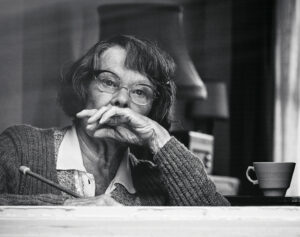
Judi Dench star as “Granny” in director Kenneth Branagh’s BELFAST, a Focus Features release. Credit: Rob Youngson / Focus Features
In such a world, we’re more likely to do what our parents did for a living or what our grandparents did for a living. In our new world, we have more options – in Pa’s words ‘a better chance’ – but we might drift eternally not sure what that ‘better chance’ entails for us. Blessed with talent, Branagh did not experience that, but I think he can see that globalisation was one thing for him and something else for countless others. The decision to leave Belfast wasn’t easy and it still isn’t: in making the film at all, Branagh is no doubt admitting that the past still isn’t clear to him. The film is dedicated to those who left and to those who stayed: Branagh is saying that both decisions are valid.
This is a film which preserves so much that needed to be preserved. I will never forget the wisdom on the face of Judi Dench as she watches the family leave on the bus towards the end, to go to the airport to start their new life.
She knows much about life, but she knows all that from having lived in one street among a small number of people. She will never leave her country. She will not travel all over the world as her grandson will do. She will not win awards, or be feted by crowds. She will not live in large houses with swimming pools. She will not know the inside of an aeroplane. She’ll not log onto a computer. She’ll not have a mobile phone.
She may not do all these things, but she may still be wise. She may be even wiser than we are. That is what this film has to say. It reminds us that shiny newness is often inferior to what we might have come to think of as shabby and outdated. And our choices have a terrible finality about then: we can never go back to what the world was before.
As the film moves towards its head we see again the bright technicolour images of modern Belfast return. We now know that it didn’t have to be this way: but it became this way because millions of people made the same decision as Pa. They wanted a ‘better chance’ for themselves and for their children.